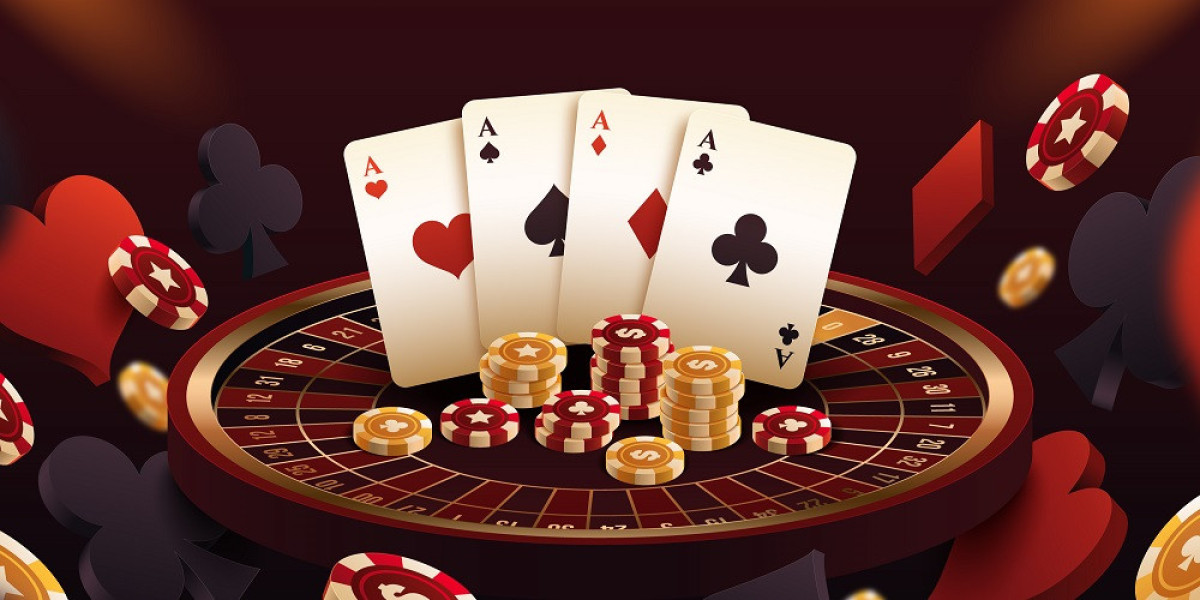Beyond the Velvet Rope: Unveiling the Secrets of High-Stakes Casino Strategies
The allure of the casino, with its shimmering lights, clinking chips, and promises of fortune, has captivated gamblers for centuries. While luck undoubtedly plays a significant role, the most successful casino players – the high-rollers who frequent the exclusive rooms and command attention – often employ sophisticated strategies that go far beyond simple chance. This article delves into the nuanced world of high-stakes casino play, exploring the advanced techniques, psychological tactics, and crucial mindset required to navigate the complexities and potentially emerge victorious. We'll move beyond the basics and examine the intricate systems that separate the casual gambler from the seasoned professional.
The Importance of Game Selection and Specialization
One of the most fundamental aspects of high-stakes casino strategy is selecting the right game. Unlike casual players who might flit between slots and roulette on a whim, serious gamblers understand that each game offers a different house edge – the inherent advantage the casino holds over the player. Minimizing this house edge is paramount. Therefore, specializing in one or two games allows players to develop a deep understanding of the game's intricacies, optimal strategies, and potential vulnerabilities.
Games like blackjack, poker, and certain variations of video poker offer the lowest house edges when played correctly. Blackjack, in particular, is a favorite among strategic players due to the possibility of card counting (although casinos actively discourage and can ban card counters). Poker, however, is a game of skill against other players, not the house, which removes the house edge almost entirely, making it purely a function of player skill.
Blackjack: Card Counting and Beyond
Card counting, despite its depiction in popular culture, is a complex and demanding skill. It involves tracking the ratio of high to low cards remaining in the deck, allowing the player to adjust their bets accordingly. When the deck is "rich" in high cards (tens, face cards, and Aces), the player has a statistical advantage, as these cards increase the likelihood of blackjack and dealer busts. However, successful card counting requires exceptional memory, focus, and the ability to remain inconspicuous. Casinos employ various countermeasures, including shuffling machines and multiple decks, to thwart card counters. Beyond basic card counting, advanced techniques like shuffle tracking and team play can further enhance a player's advantage, but these are even more challenging and carry significant risks.
Beyond card counting, a strong understanding of basic strategy is crucial for any blackjack player aiming for high stakes. This involves knowing the mathematically correct play for every possible hand combination against every possible dealer upcard. Mastering basic strategy minimizes losses and provides a solid foundation for more advanced techniques.
Poker: Skill, Strategy, and Psychological Warfare
Poker, unlike many other casino games, pits players against each other rather than the house. This dynamic fundamentally changes the strategic landscape, making it a game of skill, strategy, and psychological warfare. Successful poker players possess a deep understanding of game theory, probability, and opponent profiling. They can analyze betting patterns, detect tells (subconscious behavioral cues), and manipulate their opponents through carefully crafted bluffs and value bets.
Bankroll management is critical in poker. Professional players carefully manage their funds to withstand inevitable losing streaks and maximize their potential for profit during winning periods. They understand the importance of playing within their means and avoiding reckless bets that could jeopardize their entire bankroll. Furthermore, adapting to different table dynamics and player styles is essential for long-term success. A tight-aggressive player will approach the game differently than a loose-passive player, and understanding these nuances is vital for making informed decisions.
Bankroll Management: The Cornerstone of High-Stakes Gambling
Regardless of the chosen game or the strategies employed, effective bankroll management is the single most important factor separating successful high-stakes gamblers from those who inevitably lose. It's not just about having a large sum of money; it's about managing that money intelligently to minimize risk and maximize potential rewards. A well-defined bankroll management strategy dictates the size of each bet relative to the overall bankroll, the maximum amount that can be lost in a single session, and the circumstances under which play should be stopped.
A common rule of thumb is to never risk more than 1-2% of your total bankroll on a single bet. This principle helps to protect against variance – the inevitable swings of fortune that can decimate even the most skilled players. By limiting the size of each bet, players can weather losing streaks and remain in the game long enough to capitalize on favorable opportunities.
Setting Limits and Sticking to Them
Establishing clear win and loss limits is crucial for maintaining discipline and preventing emotional decision-making. A win limit represents the point at which a player should stop playing, regardless of how well they are doing. This helps to avoid the temptation of "giving back" profits to the casino. A loss limit, conversely, represents the maximum amount a player is willing to lose in a single session. Once this limit is reached, play should cease immediately to prevent further losses.
These limits should be pre-determined and adhered to strictly, even when faced with strong emotions. Many gamblers fall victim to the "gambler's fallacy," believing that a losing streak is sure to be followed by a winning one. This fallacy can lead to reckless bets and ultimately, financial ruin. By setting and sticking to pre-defined limits, players can protect themselves from the emotional traps that often lead to impulsive and detrimental decisions.
Psychological Warfare and Reading Opponents
In games like poker, where players compete against each other, psychological warfare plays a significant role. This involves using a combination of body language, verbal cues, and betting patterns to deceive and intimidate opponents. Skilled poker players are adept at reading "tells" – subtle, often unconscious behavioral cues that betray a player's hand strength or intentions. These tells can range from subtle changes in facial expression to nervous fidgeting or variations in breathing patterns.
Conversely, successful players are also masters of deception, capable of masking their own tells and projecting false information to their opponents. This might involve feigning weakness when holding a strong hand to entice opponents to bet, indwin (indwin-365.com) or bluffing aggressively to force opponents to fold. The ability to control emotions and maintain a poker face is essential for success in this realm.
The Art of Bluffing and Inducing Tilt
Bluffing is a crucial element of poker strategy, allowing players to win pots even when holding a weak hand. A well-timed bluff can force opponents with stronger hands to fold, allowing the bluffer to collect the pot. However, bluffing should be used sparingly and strategically, as excessive bluffing can be easily detected and exploited. Successful bluffing requires careful observation of opponents, a keen understanding of betting patterns, and the ability to convincingly portray a strong hand.
Another important psychological tactic is inducing "tilt" in opponents. Tilt refers to a state of emotional distress that impairs a player's judgment and leads to poor decision-making. This can be achieved through a variety of means, such as aggressive betting, taunting, or simply creating a tense and uncomfortable atmosphere. Players on tilt are more likely to make impulsive bets, chase losses, and deviate from their established strategies, making them vulnerable to exploitation.
Advanced Strategies and Techniques
Beyond the fundamental principles of game selection, bankroll management, and psychological warfare, high-stakes casino play often involves the application of advanced strategies and techniques that are specific to each game. These strategies can be complex and require extensive study and practice to master.
In blackjack, advanced techniques like shuffle tracking, which involves predicting the order of cards after a shuffle, can provide a significant advantage. In poker, advanced concepts like game theory optimal (GTO) play and exploitative play are used to maximize expected value in different situations. GTO play involves making decisions that are mathematically optimal against a perfect opponent, while exploitative play involves deviating from GTO to capitalize on the specific weaknesses of individual opponents.
Exploiting Casino Promotions and Loyalty Programs
Savvy high-stakes players often take advantage of casino promotions and loyalty programs to enhance their returns. These programs typically offer rewards such as free rooms, meals, and cashback based on the amount of money wagered. By strategically utilizing these benefits, players can effectively reduce the overall cost of gambling and increase their potential profits. Some casinos also offer rebates on losses, which can further mitigate the risk of gambling.
Furthermore, negotiating with casino management can sometimes yield additional benefits, particularly for high-rollers. This might involve requesting higher betting limits, access to exclusive rooms, or even personalized promotions tailored to their specific playing style. Building relationships with casino staff and demonstrating a consistent level of play can often lead to these types of perks.
The Mindset of a High-Stakes Gambler
Ultimately, success in high-stakes gambling requires more than just knowledge and skill. It also demands a specific mindset characterized by discipline, patience, and emotional control. The ability to remain calm and rational under pressure, to make objective decisions in the face of adversity, and to avoid impulsive actions is crucial for long-term success.
High-stakes gamblers understand that variance is an inherent part of the game and that losing streaks are inevitable. They do not allow short-term losses to affect their long-term strategy or undermine their confidence. Instead, they view setbacks as opportunities to learn and improve. They are also disciplined enough to stick to their pre-defined limits and avoid chasing losses, even when tempted to do so.
Accepting Variance and Embracing the Grind
Variance, or the short-term fluctuations in results, is a constant presence in gambling. Even the most skilled players will experience periods of bad luck and losing streaks. The key is to accept variance as a natural part of the game and to avoid letting it affect decision-making. This requires a strong mental fortitude and the ability to remain objective even when facing adversity.
The "grind" refers to the long hours and hard work required to succeed in high-stakes gambling. It's not always glamorous, and it often involves enduring long periods of boredom and frustration. Successful players are those who are willing to put in the time and effort required to master their craft and to persevere through the inevitable challenges.
Conclusion: The High-Stakes Game is Not for Everyone
The world of high-stakes casino gambling is a complex and demanding one, requiring a unique combination of skill, strategy, and psychological fortitude. While the potential rewards can be substantial, the risks are equally significant. It's essential to approach this arena with caution and a thorough understanding of the challenges involved. While the allure of quick riches is strong, only those who are prepared to dedicate the time, effort, and resources necessary to master the game have a realistic chance of success. For most, the casino should remain a form of entertainment, enjoyed responsibly and within pre-defined limits. The secrets of high-stakes strategies offer a glimpse into a fascinating world, but they are best left to those with the discipline and bankroll to navigate its treacherous waters.
| Strategy Element | Description | Importance |
|---|---|---|
| Game Selection | Choosing games with low house edges and specializing in one or two. | Critical for minimizing losses and maximizing potential profits. |
| Bankroll Management | Managing funds intelligently to minimize risk and maximize rewards. | The most important factor separating successful gamblers from losers. |
| Psychological Warfare | Using body language, verbal cues, and betting patterns to deceive opponents. | Crucial in games like poker where players compete against each other. |
| Advanced Techniques | Applying complex strategies and techniques specific to each game. | Provides an edge over less skilled players. |
| Mindset | Maintaining discipline, patience, and emotional control. | Essential for remaining calm and rational under pressure. |
- Always set a budget before you start gambling.
- Never chase your losses.
- Know the rules of the game you are playing.
- Take breaks to avoid fatigue and emotional decision-making.
- Consider gambling as a form of entertainment, not a source of income.








